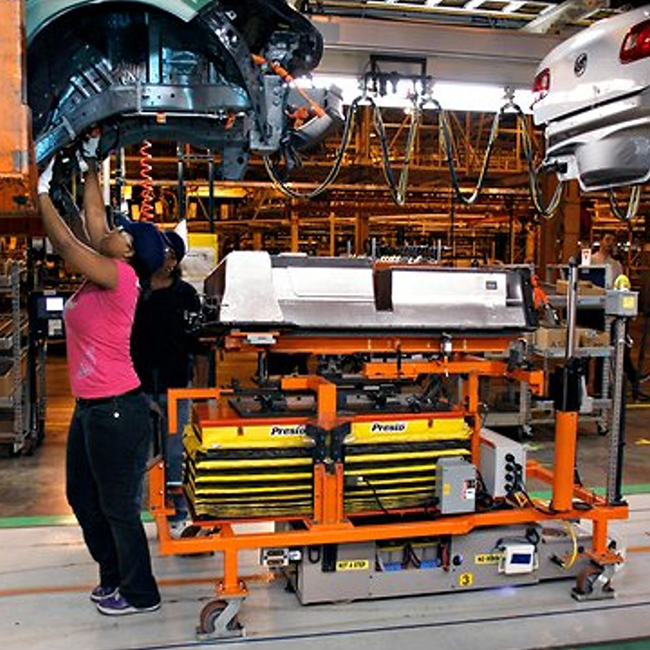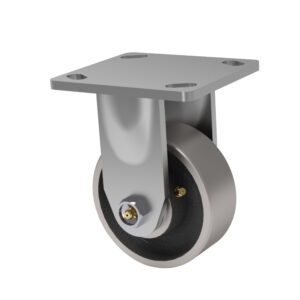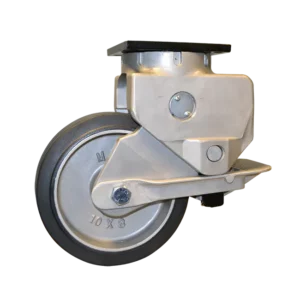

In industrial settings, selecting the right caster material is crucial for optimal performance, safety, and cost-efficiency. With steel and aluminum as the two top contenders, each offers unique benefits tailored to specific challenges. Wondering which caster is best for your needs? Let’s break down the strengths and considerations for each type to help you make the best choice.
 Steel casters are designed to withstand the harshest environments and carry the heaviest loads. When durability and load-bearing capacity are non-negotiable, steel is the go-to choice. Here’s why:
Steel casters are designed to withstand the harshest environments and carry the heaviest loads. When durability and load-bearing capacity are non-negotiable, steel is the go-to choice. Here’s why:
Best Suited For:
Steel casters are the perfect solution for applications requiring heavy load handling, such as manufacturing plants, warehouses with heavy equipment, and construction sites.
Example Applications:
 When lightweight maneuverability and corrosion resistance are essential, aluminum casters stand out as the preferred option. Here’s what they bring to the table:
When lightweight maneuverability and corrosion resistance are essential, aluminum casters stand out as the preferred option. Here’s what they bring to the table:
Best Suited For:
Aluminum casters are great for facilities focused on easy maneuverability and lighter loads, such as food production, medical equipment, marine and general manufacturing setups.
Example Applications:
Here’s a quick look at the key differences to help guide your decision:
| Feature | Steel Casters | Aluminum Casters |
| Load Capacity | High (Ideal for heavy loads) | Moderate (Best for lighter loads) |
| Corrosion Resistance | Low (Requires maintenance in wet settings) | High (Rust-resistant) |
| Weight | Heavy | Lightweight |
| Durability | High (Withstands extreme conditions) | Moderate (Ideal for controlled settings) |
| Best Use | Heavy-duty, high-impact environments | Lightweight, corrosion-prone environments |
Get Expert Guidance
Still unsure which caster is best for your application? Choosing the right material is key to reducing downtime and maintenance while boosting productivity. Steel or aluminum, each caster has a distinct advantage, but it’s essential to match the caster to your environment and needs.
At Caster Concepts, we don’t just provide casters—we engineer solutions tailored to your challenges. Ready to get rolling? Contact our specialists to find the perfect caster for your needs, backed by engineering expertise and a dedication to exceptional quality. Whether you need the brute strength of steel or the corrosion resistance of aluminum, our team is here to help.
By choosing the right caster, you’ll save on costs, boost productivity, and ensure safety across your operations. Let’s make your material handling easier, safer, and more efficient.
Contact a Solutions Specialist